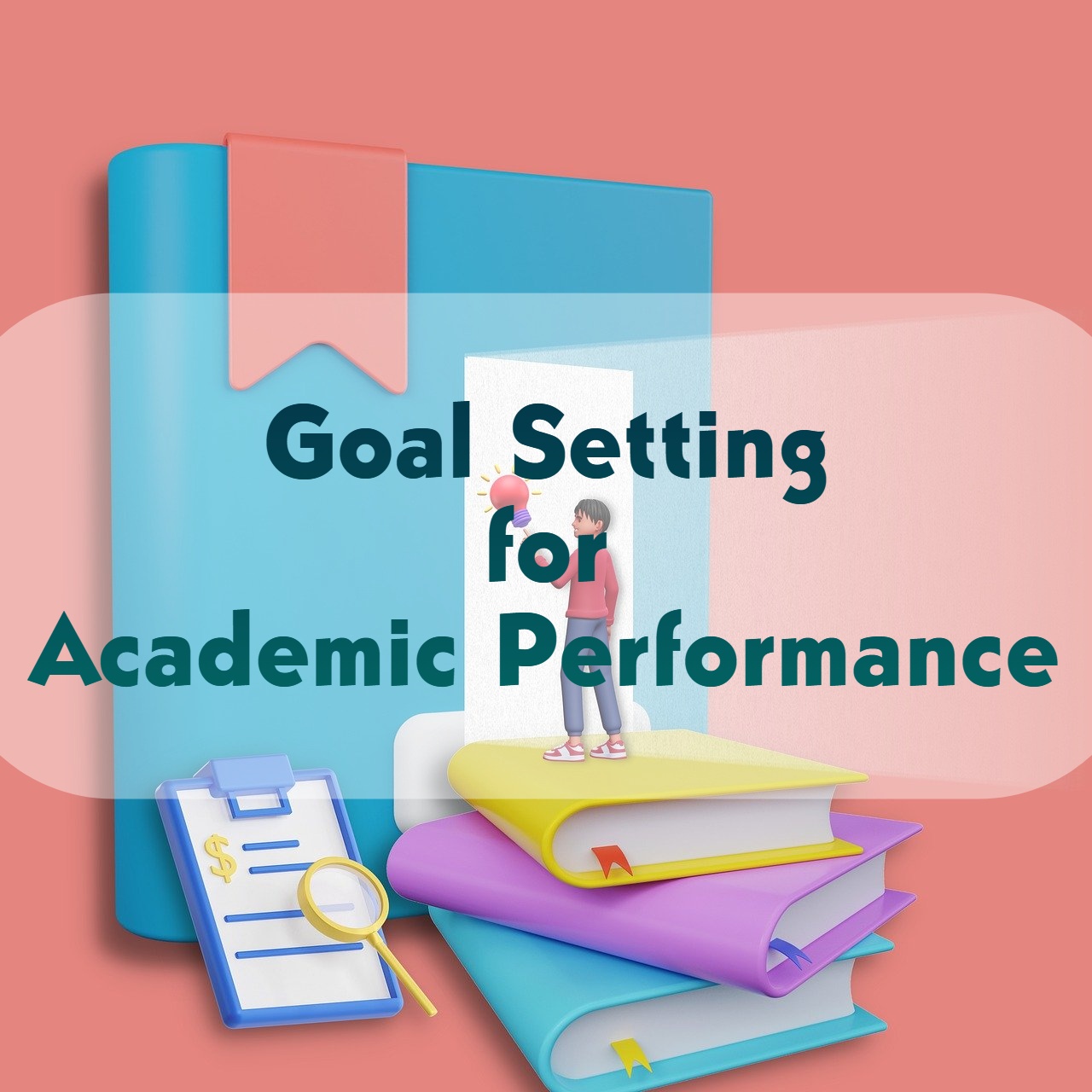The Academic Advantage: How Goal Setting Can Transform Your Education
Imagine standing at the starting line of a race without knowing where the finish line is. You might run hard, but how would you know if you’ve reached your goal? This is where goal setting comes in. Goal setting is like setting a destination on a map before starting a journey. It gives you direction, focus, and a sense of purpose.
In the academic world, goal setting is a game-changer. It’s not just about getting good grades; it’s about defining what success means to you and taking steps to get there. Whether you’re aiming for that top spot in class, looking to improve your grades, or wanting to excel in a particular subject, setting goals can help you turn your aspirations into reality.
In this article, we’ll delve into the world of goal setting, exploring what it means, why it’s essential, and the different types of goals you can set to supercharge your academic performance. So, lace up your shoes, grab your map, and let’s embark on a journey to academic excellence through the power of goal setting!
Related Article: Personal Development Examples in Real-Life

Defining Goal Setting:
Goal setting is the process of defining specific objectives that an individual aims to achieve within a set timeframe. These objectives are often clear, measurable, and accompanied by a plan of action to attain them. In academic settings, goal setting typically involves identifying academic targets, such as grades, skills, or accomplishments, and outlining the steps needed to reach them.
Importance of Goal Setting:
- Achieving Higher Grades:
Setting academic goals can lead to improved grades as students are motivated to study more effectively and efficiently.
- Enhanced Self-Discipline:
Goal setting requires self-discipline to stay focused and follow through with the necessary actions to achieve the set objectives.
- Improved Decision Making:
Setting goals encourages students to make informed decisions that align with their academic aspirations, leading to better choices in study habits and time management.
- Reduced Procrastination:
Having clear goals can reduce procrastination as students are more likely to prioritize their tasks and work towards their objectives.
- Preparation for Future Success:
Goal setting teaches valuable skills that are transferable to future endeavors, such as setting career goals and pursuing lifelong learning.
Types of Goals:
Setting goals is essential for personal growth and academic success. There are different types of goals that individuals can set to improve various aspects of their lives. Here are the four main types of goals:
- Short-Term Goals:
Short-term goals are objectives that can be achieved relatively quickly, typically within a few days, weeks, or months. These goals help individuals focus on immediate tasks and provide a sense of accomplishment along the way. Examples of short-term goals include completing a homework assignment, finishing a reading list for a course, or improving time management skills for the upcoming semester.
- Long-Term Goals:
Long-term goals are broader objectives that require a more extended period to achieve, often spanning several months or years. These goals provide a sense of direction and purpose, guiding individuals towards significant achievements in the future. Examples of long-term goals include graduating with honors, pursuing a specific career path, or mastering a new language over the course of several years.
- Academic Goals:
Academic goals are specific objectives related to one’s education and learning. These goals are aimed at improving academic performance, acquiring new skills, and achieving academic success. Examples of academic goals include achieving a certain GPA, completing a degree program, or participating in research projects.
- Personal Development Goals:
Personal development goals focus on self-improvement and growth outside of academics. These goals help individuals develop important life skills, improve their well-being, and enhance their overall quality of life. Examples of personal development goals include improving communication skills, developing better study habits, or maintaining a healthy work-life balance.
Related Article: Self Improvement Techniques
By setting and working towards these different types of goals, individuals can improve their focus, motivation, and overall success in both academic and personal endeavors.
Link between Goal Setting and Academic Performance:
Goal setting is a powerful tool that can significantly impact academic performance. Research and studies have consistently shown a strong correlation between setting goals and achieving academic success. Let’s explore this connection and how goals can motivate and focus students.
Research Supporting the Connection:
Numerous studies have demonstrated the positive effects of goal setting on academic performance. For example, a study published in the Journal of Educational Psychology found that students who set specific, challenging goals achieved higher academic performance than those who did not set goals. Another study published in the Journal of Applied Psychology showed that goal setting was positively associated with academic achievement, particularly when goals were specific and moderately difficult.
How Goals Motivate and Focus Students?
Goals provide students with a clear sense of direction and purpose. When students set academic goals, whether short-term or long-term, they are more motivated to work towards achieving them. Goals act as a roadmap, guiding students through their academic journey and helping them stay focused on what needs to be done.
Moreover, goals provide students with a sense of accomplishment. As they make progress towards their goals, they experience a sense of achievement that motivates them to continue working hard. This sense of accomplishment can also boost students’ confidence and self-esteem, further enhancing their academic performance.
Setting SMART Goals for Academic Success:
Setting goals is an important step towards achieving academic success. However, not all goals are created equal. To make your goals more effective, you can use the SMART criteria. SMART stands for Specific, Measurable, Achievable, Relevant, and Time-bound. Let’s break down what each of these means and how you can apply them to your academic goals.

Specific:
When setting a goal, be specific about what you want to accomplish. Instead of saying, “I want to do better in math,” you could say, “I want to improve my math grade from a B to an A-.”
Measurable:
It’s essential to have a way to measure your progress towards your goal. This could be a specific grade, the number of hours you study each week, or the completion of a certain number of assignments.
Achievable:
Your goal should be challenging but attainable. Setting a goal that is too easy won’t push you to improve, but setting one that is unrealistic will only lead to frustration. Make sure your goal is something you can realistically achieve with effort and commitment.
Relevant:
Your goal should be relevant to your overall academic objectives. It should align with your values, interests, and long-term aspirations. For example, if you’re interested in pursuing a career in science, setting a goal to excel in your science courses would be relevant.
Time-bound:
Finally, your goal should have a deadline. Setting a timeframe for achieving your goal creates a sense of urgency and helps you stay focused. For example, you could set a goal to improve your essay writing skills by the end of the semester.
Related Article: How to Manage Time Better?
Examples of SMART Academic Goals
- “I will achieve a grade of B+ or higher in my history class by the end of the semester by attending all lectures, participating actively in discussions, and seeking help from the professor when needed.”
- “I will complete all assigned readings and homework for my literature class on time each week to ensure I have a thorough understanding of the material.”
- “I will improve my time management skills by creating a study schedule and sticking to it, dedicating at least two hours each day to study for my exams.”
Setting SMART goals can help you stay focused, motivated, and on track towards achieving your academic objectives. So, take some time to think about what you want to achieve, apply the SMART criteria, and watch your academic success soar!
Goal Setting Tips for Parents and Educators:
As parents and educators, you play a crucial role in supporting students’ academic success. One way to do this is by helping them set and achieve their goals. Here are some tips for supporting students in setting and achieving their goals and creating a conducive environment for goal setting:
- Encourage Specific Goals:
Help students define clear, specific goals. Instead of vague goals like “do better in math,” encourage goals like “improve my math grade from a B to an A- by the end of the semester.”
- Provide Guidance:
Offer guidance and support as students work towards their goals. Help them break down their goals into manageable steps and create a plan of action.
- Celebrate Progress:
Celebrate small victories along the way. Acknowledge and praise students for their efforts and progress towards their goals.
- Lead by Example:
Set your own goals and share your progress with students. This can inspire them to set and achieve their own goals.
- Create a Supportive Environment:
Create a supportive environment where students feel safe to set ambitious goals and work towards them. Encourage a growth mindset, emphasizing that abilities can be developed through dedication and hard work.
- Provide Resources:
Provide students with the resources they need to achieve their goals, whether it’s access to books, materials, or additional support from tutors or mentors.
- Adjust Goals as Needed:
Encourage students to review and adjust their goals as needed. Sometimes circumstances change, and its okay to modify goals accordingly.
Final Thoughts:
In conclusion, goal setting is a powerful tool that can significantly improve academic performance. By setting specific, measurable, achievable, relevant, and time-bound (SMART) goals, students can enhance their motivation, focus, and productivity. Goals provide a sense of direction and purpose, helping students prioritize their tasks and stay on track. They also promote personal development, teaching valuable skills such as time management, self-discipline, and perseverance.
If you haven’t already, I encourage you to start setting academic goals today. Whether you’re aiming to improve your grades, master a challenging subject, or achieve a specific academic milestone, setting goals can help you turn your aspirations into reality. So, take the time to define your goals, create a plan of action, and watch as your academic performance reaches new heights.

